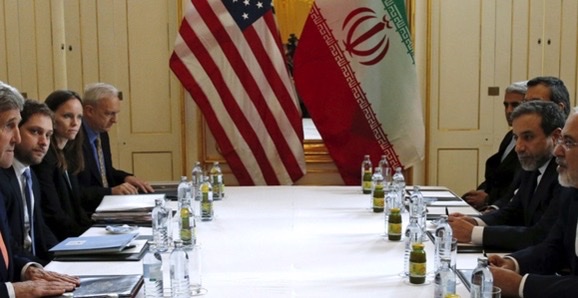Efforts to revive the 2015 Iran nuclear deal are at a "critical stage" and Tehran's reasons for avoiding talks are running out. The United States Special Envoy for Iran reported it to the press, Robert Malley who added: "Washington is increasingly concerned that Tehran will continue to delay the return to talks. In this regard, however, we have other tools to prevent Iran from developing a nuclear weapon ".
"We are, therefore, in ua critical phase to relaunch the JCPOA - Joint Comprehensive Plan of Action - ”Malley said. "We have had a pause of many months and the official reasons given by Iran why we are in this pause are very scarce", specified the US envoy.

While stating that there is a lot of distance between the US and Iran for the return to the JCPOA, Malley confirmed that the US is still willing to engage in a new diplomatic effort with Iran, although other options are being considered to prevent Tehran to get the bomb.
The return to the agreement will lead to economic benefits for Tehran, emphasizes Malley, because the economic sanctions of the United States, the European Union and the United Nations would be eased.
The President Donald Trump withdrew from the agreement three years ago, reactivating all revoked sanctions and adding more than 1.500 restrictive measures. In response, Iran has significantly increased its nuclear activity beyond the bounds of the agreement.
President Biden, on the other hand, has reversed the course of 360 ° for a return of the United States to the agreement. However, Iran refused to meet directly with US negotiators, led by the special envoy Robert Malley, but has consented to indirect talks in a third place, Vienna in fact.
The goal of the original agreement was to limit Iran's uranium enrichment activities and to impose rigorous, unannounced inspections and audits by of the International Atomic Energy Agency.
Returning to today, Malley did not openly describe the other options that America could put in place but it is known that after the talks in Vienna on the relaunch of the agreement Washington has begun to talk more and more of pursuing other options, a phrase that alludes to the possibility, albeit very remote, of military action.
The US envoy, who last week consulted US partners in the Gulf and Europe, stressed that all parties recommend continuing with diplomacy, looking for ways to economically involve Iran in new projects.
Iran, in response to this new phase, has hinted that it will "soon" return to talks with the United States on resuming compliance with the agreement, but has not yet set a date.
The Iranian nuclear negotiator, Ali Bagheri Kani, plans to meet Enrique Mora from the EU, who coordinates talks between Iran and other parties to the agreement, in Brussels on Wednesday: Great Britain, China, France, Germany, Russia and the United States.
Iran, meanwhile, is continuing to increase uranium enrichment beyond the 20% threshold at a Natanz plant where 60% purity has already been achieved.
Analysts argue that Iran's return to the limits set by the JCPOA it is easily prosecuted though there is a strong concern for the knowledge made by Iranian scientists in these three years in which they have accelerated uranium enrichment activities.
